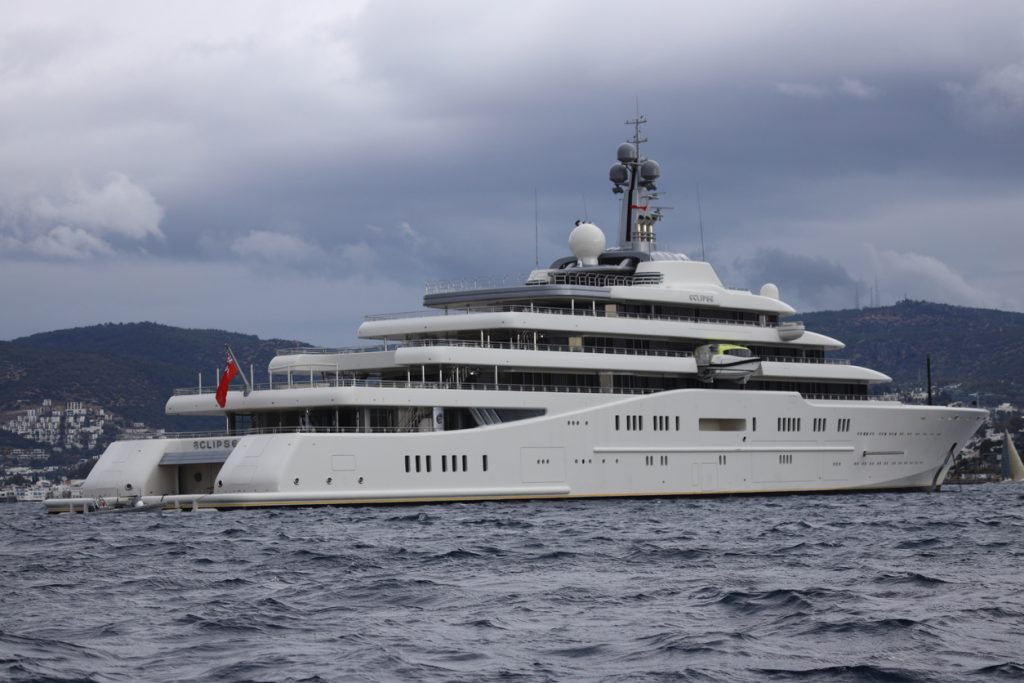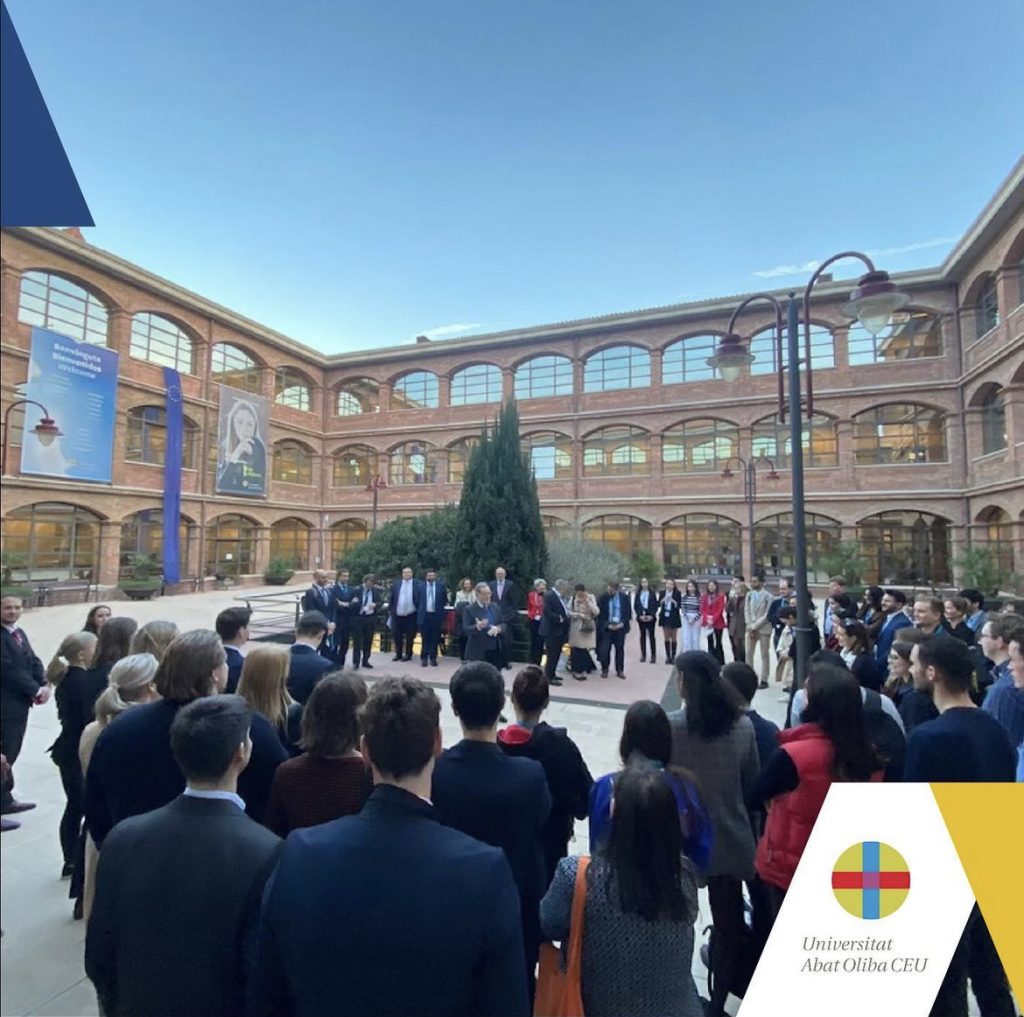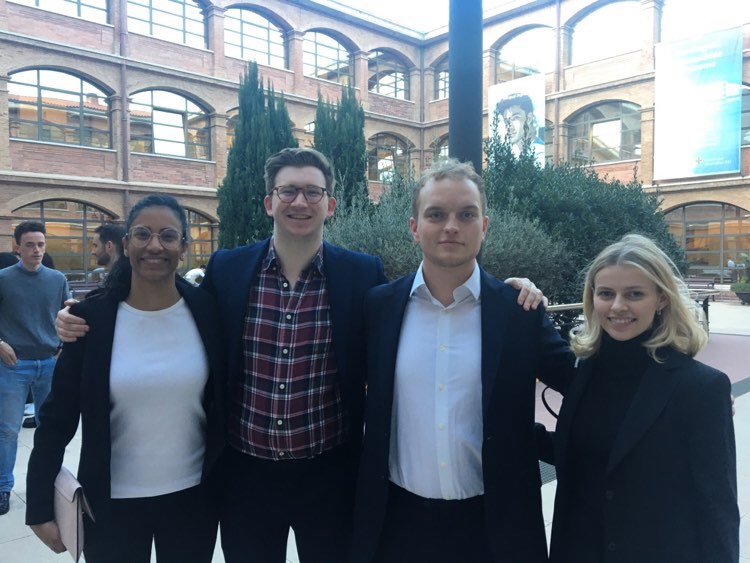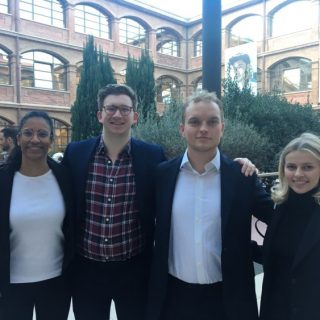For those students who are selected to represent City as part of one of the national or international moot competitions, life can be pretty busy. Here we hear from one of this year’s European Law Moot Competition team, Cinzia Chirayil.
At the start of the academic year, Professor Emily Allbon encouraged us to participate in one of the mooting competitions supported by City, University of London or to find one on our own. Mooting is an enriching experience for many reasons, as you may have already found. From my personal perspective, nothing could have prepared me for the satisfaction we have experienced so far as part of the European Law Moot Competition (ELMC) team representing City in 2022/2023.
Established in 1988, the ELMC aims to promote interest in European Union Law and connect students on an international level. The moot problem can include legal issues relating to the functioning of the internal market and the fundamental rights of citizens. The top-performing teams are chosen to compete in one of the four Regional Finals in February/March, and the regional winners then argue in front of the Judges of the Court of Justice of the European Union (CJEU) in April/May.
A few weeks after moving to the United Kingdom and starting the GDL, we were asked to submit a commentary on the CJEU’s case law regarding proportionality assessments on the withdrawal of Member State nationality if we wanted to represent City at the ELMC. The selection process was challenging, and initially I didn’t make the team. However, in early November, Professor Panos Koutrakos informed me that I, along with Faye Metcalfe, James Cronin and Nick West, had been selected to form the ELMC team. Samuel Willis (himself a former City GDL student, and now Research Fellow at the Public Law Project) had been named as our team coach for the ELMC adventure.

Our written pleadings were due on 25th November. We quickly had to familiarise ourselves with a complex case scenario. The moot problem started with the introduction of a sanctions regime against a Third Country in the context of heightened international tensions surrounding a State neighbouring the European Union. It went on to describe an oil spill causing an ecological disaster of huge proportions and the withdrawal of a Golden Passport from a student. The scenario included colourful facts, such as the discovery of a rare spice, wild animals from Pablo Escobar’s Zoo and a super-yacht with a colosseum on board!
Three questions were posed to the Court of Justice in the context of a preliminary ruling proceeding. Each of them required long hours of research and discussion before we prepared the submissions for each side. We split the work, and soon realized we were not required to apply the law on the case’s facts: instead, we had to propose a legal test that the national court would be required to apply in the context of domestic proceedings in order to comply with EU law. The questions included examining the effect of the annulment of an individual’s listing in an EU sanctions regulation, discussing a Member State’s competence to adopt its own sanction regime, analysing a vessel owner’s liability under the Environment Liability Directive, and understanding the level of protection granted under the Charter of the Fundamental Rights when a Member State withdraws nationality.
We waited patiently for the announcement of the teams selected for the Regional Finals, which were to be held in Lund (Sweden), Lille (France), Bucharest (Romania), and Barcelona (Spain), and whether we would have to prepare further pleadings as Commission Agent or Advocate General.
On 15th January, we found out we would represent our University at the Regional Final in Barcelona, where would compete against 11 other teams. After the closing of the pupillage applications gateway, our preparation for the Regional Final resumed at an increased pace: in the blink of an eye, we had to choose the pleaders and the legal counsel. Faye and Nick would represent the applicant and the defendant, respectively; James would take the role of Commission Agent and I would be the legal counsel.

On 9th March we flew to Barcelona. The tension was palpable that night at the Universitat Abat Oliba CEU, when the organizer revealed the schedule for the following day, but the team was excited to present our submissions and compete. At the end of the following day, satisfied by our performances, we had to change plans: the sangria and tapas could wait. We had to work that night, because our Applicant and Defendant had been selected for the semi-finals! Saturday brought even more excitement: from the semi-final we went to the finals where we would have to face the team from the University of Vienna. These were to be held in front of a panel of all the ten judges inside the solemn Great Hall of the Bellesguard Campus. We ended up winning thanks to Faye’s excellent advocacy and a wonderful joint effort from the team!
That night we celebrated with all the other teams from the competition. But the adventure is not over yet, because on 21 April we will face the winners of the other regional finals in Luxembourg, being judged by real judges of the CJEU. May the best team win!


